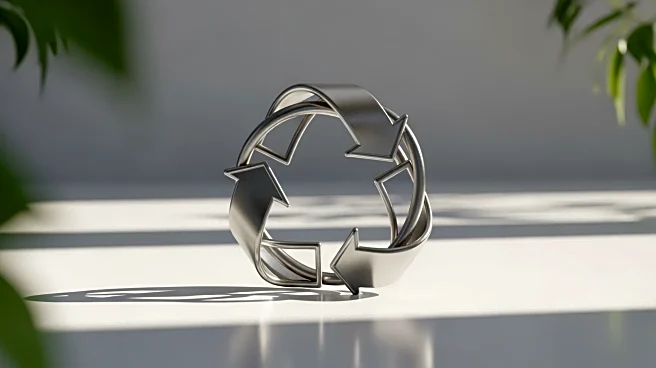What's Happening?
California has unveiled a Draft Zero Waste Plan, aiming to eliminate waste and transform material use across the state. The plan, developed by the Department of Resources Recycling and Recovery (CalRecycle),
emphasizes a circular economy approach, focusing on the full lifecycle of products. It proposes systemic changes across industries, encouraging businesses to redesign, reduce, and reuse materials before recycling. The plan outlines 15 recommendations, including expanding Extended Producer Responsibility (EPR) programs and revising existing statutes to align with circular economy principles. The Draft Plan is open for public comment and aims to be finalized by January 2026.
Why It's Important?
The Draft Zero Waste Plan represents a significant shift in California's approach to waste management, potentially setting a precedent for other states. By promoting a circular economy, the plan could reduce environmental impact and resource consumption, benefiting both the environment and the economy. Businesses may face new compliance obligations but also opportunities for innovation and leadership in sustainable practices. The plan's emphasis on shared responsibility and cross-agency collaboration could lead to more cohesive and effective waste management policies, influencing national and international waste reduction efforts.
What's Next?
CalRecycle will continue to refine the Draft Plan based on public feedback, with a final version expected by early 2026. Businesses are encouraged to engage with regulators and align their strategies with the plan's goals. This proactive approach could help companies influence policy development and prepare for future regulatory changes. As the plan progresses, stakeholders will need to monitor developments closely, particularly regarding new EPR programs and statutory requirements. The plan's implementation could lead to increased enforcement and compliance pressures, making early adaptation crucial for businesses.









